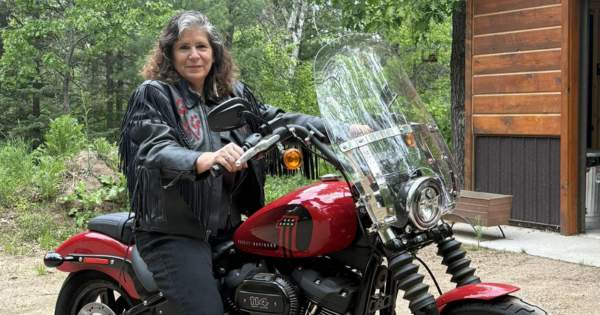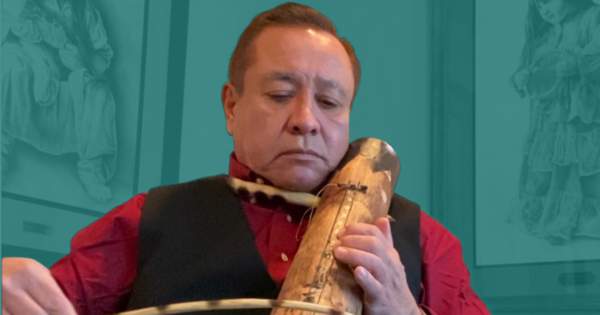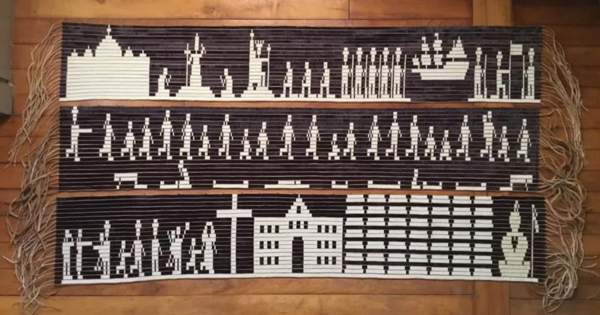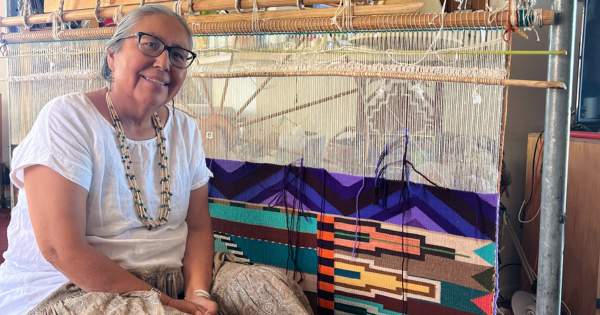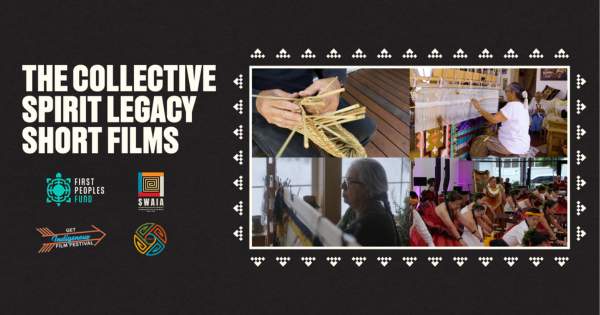
Multicultural Arts Leaders Unite in Rapid City for ILI-South Dakota
From May 9-14, 2024, Rapid City, South Dakota and the Pine Ridge Reservation were the center of cultural exchange and leadership development as First Peoples Fund hosted the Intercultural Leadership Institute (ILI) Cultural Intensive convening of the Year 5 Fellows. The gathering brought together 60 established and emerging artists, culture bearers, and arts professionals from throughout the nation alongside First Peoples Fund staff and board members. The ILI commitment to cultural equity and its support for changemakers in communities were at the forefront.
“The biggest takeaway for me was the comparison as an Indigenous person from an island with expansive oceans and skies. Driving to Pine Ridge, I realized it's no different than Hawaii—we swap out the ocean for land. I pulled away feeling we're no different, and the similarities are striking because we deal with the same issues,” ILI Year 5 Fellow Lehuanani Waipā Ah Nee said.
I pulled away feeling we're no different, and the similarities are striking because we deal with the same issues
ILI is a collaborative program among partners, including Alternate Roots, First Peoples Fund, National Association of Latino Arts & Cultures, Pa'i Foundation, Sipp Culture, First Alaskans Institute, and The International Association of Blacks in Dance. The year-long fellowship program is designed to promote personal and leadership development that includes cultural intensives in different parts of the country, including the last two cultural intensives which were held in New Orleans, LA and Jackson, MS. By bringing together individuals from various cultures and career stages, ILI creates an environment for mutual learning, cultural exchange, and an understanding of cultural equity.
“The ILI partners have been instrumental collectively, building for the future by ensuring that when one is at the table, all are at the table. We speak from a collective voice and multiple perspectives of communities. My voice has shifted from just a Black Southern woman perspective to a global perspective as I commune with people in general,” Lauren said.
Throughout the convening, attendees engaged in various activities designed to educate and inspire. The first day began in Rapid City with an introduction to Lakota lands, setting an inviting atmosphere for the attendees. The group then visited the Oglala Lakota Artspace (OLA) on the Pine Ridge Reservation in Kyle, SD. During the drive, they listened to a recording created in-house by Wicahpi Olowan Program Manager, Talon Ducheneaux that introduced them to Indian Country and the history of Wounded Knee. The day included a powerful and moving visit to the actual Wounded Knee site, the historical center at Oglala Lakota College and a return visit to the OLA where Keith Braveheart (Oglala Lakota)-- an ILI Year 3 alumnus, 2019 FPF Cultural Capital Fellow and 2021 FPF Community Spirit Award honoree – and Raymond Janis (Oglala Lakota), a local artist, hosted a screen printing workshop for the entire group.
Lauren reflected on her experience at Wounded Knee, “The story shared by Richard Two Dogs was moving because it came from his family, and we also heard another story from Wendell Yellow Bull. Being at Wounded Knee is always heavy, and it’s heavy for a good reason. Understanding how colonialism impacts people from different cultures is crucial.”
On the second day of the convening, the group visited Mato Paha (also known as Bear Butte) to learn about the history of this sacred site from Joe Giago and for some reflective time as they hiked the trail. The day ended in Rapid City with an inspiring presentation by NDN Collective President and CEO Nick Tilsen, “Defend, Develop, Decolonize!”
Understanding how colonialism impacts people from different cultures is crucial
“I think the best day was probably visiting Mato Paha and taking folks there to learn more about the site since it’s such an important sacred site for the Lakota people and other Native nations, too. It was cool to influence their experience of it through our cultural lens versus just as a hiking spot. Sharing the land with the folks like that was important,” said Nathaniel Ruleaux, OLA Program Manager.
The third day featured a presentation by Amy Sazue (Sicangu and Oglala Lakota), Executive Director of the Remembering the Children Memorial, on the history of Rapid City treaty lands, as well as classes at the OLA taught by Kyle Mesteth (Lakota) on "Ground Control," and Helene (Oglala Lakota) and Waylon Gaddie (Oglala Lakota) on "Star Knowledge."
Talon Ducheneaux, OLA Wicahpi Olowan Music Program & Studio Manager, who helped program the intensive, reflected on their approach: "What really sticks out to me is how we tried to structure everything so that people didn't leave with a gloomy feeling or a heavy focus on our traumatic history. We wanted to acknowledge our past and how we've risen above it without dwelling solely on the trauma."
On the fourth and final day, attendees explored the Journey Museum in Rapid City and participated in Tipi teachings with Ruth Cedar Face (Lakota) and Janice Richards (Oglala Sioux). They also learned firsthand from Nathaniel Ruleaux about his exhibit at the museum.
"Carlton Turner told me on the last night of ILI, 'I have come here several times over the years, and this is the first time that I truly understand the Lakota terms and what they mean and how it all fits together.' That made me feel like it was all worth it." - Leslie Mesteth (Oglala Lakota), Oglala Lakota Artspace, Associate Director
Leslie Mesteth, OLA Associate Director and contributor to the programming of the ILI Intensive, shared a memorable moment from the convening: "Carlton Turner told me on the last night of ILI, 'I have come here several times over the years, and this is the first time that I truly understand the Lakota terms and what they mean and how it all fits together.' That made me feel like it was all worth it."
I have come here several times over the years, and this is the first time that I truly understand the Lakota terms and what they mean and how it all fits together
The closing dinner included a presentation of ILI certificates and closing reflections by the fellows, ILI co-facilitators and the First Peoples Fund host staff. The night ended with featured performances by local Native performing artists Bazille (Talon Ducheneaux), K-Dawg, Santee Witt, Stella Standingbear, Terrance Jade, and Tiana Spotted Thunder, providing a fitting conclusion to the convening.
“Being part of ILI, with people from different backgrounds, reminded me of my upbringing around diverse cultures. It was a great experience to share perspectives with peers of different ages and to show them what an Indigenous community and reservation are like. Even though we're different people, we could see something through a common lens despite our differences, and it was powerful to share our stories, music, and values as Indigenous people,” Joeseph Arnoux, Year 5 ILI fellow.
The 2024 South Dakota ILI Intensive demonstrated cultural exchange and collective growth. As attendees returned to their communities, the event's experience undoubtedly contributed to a more inclusive and equitable arts landscape.

